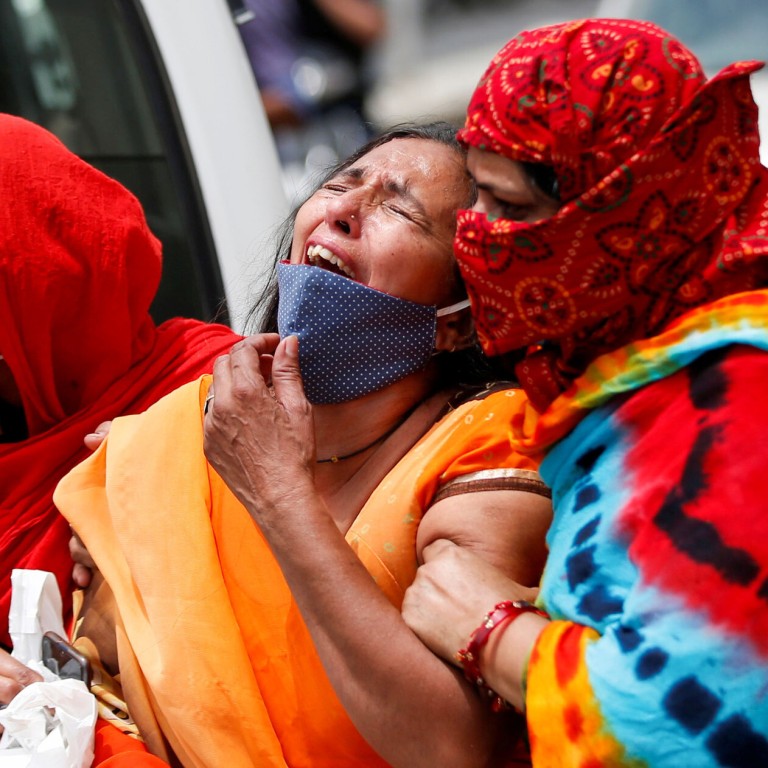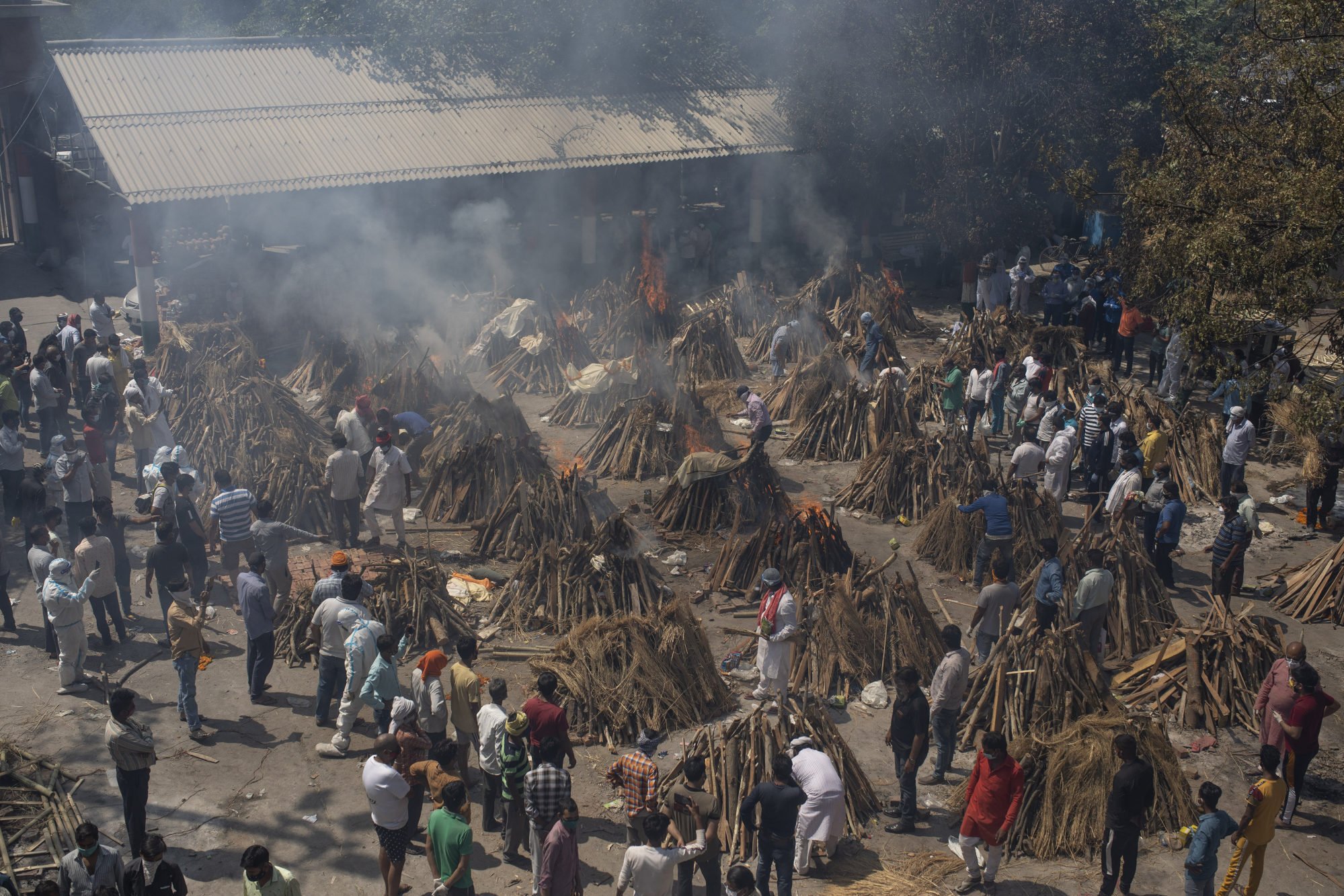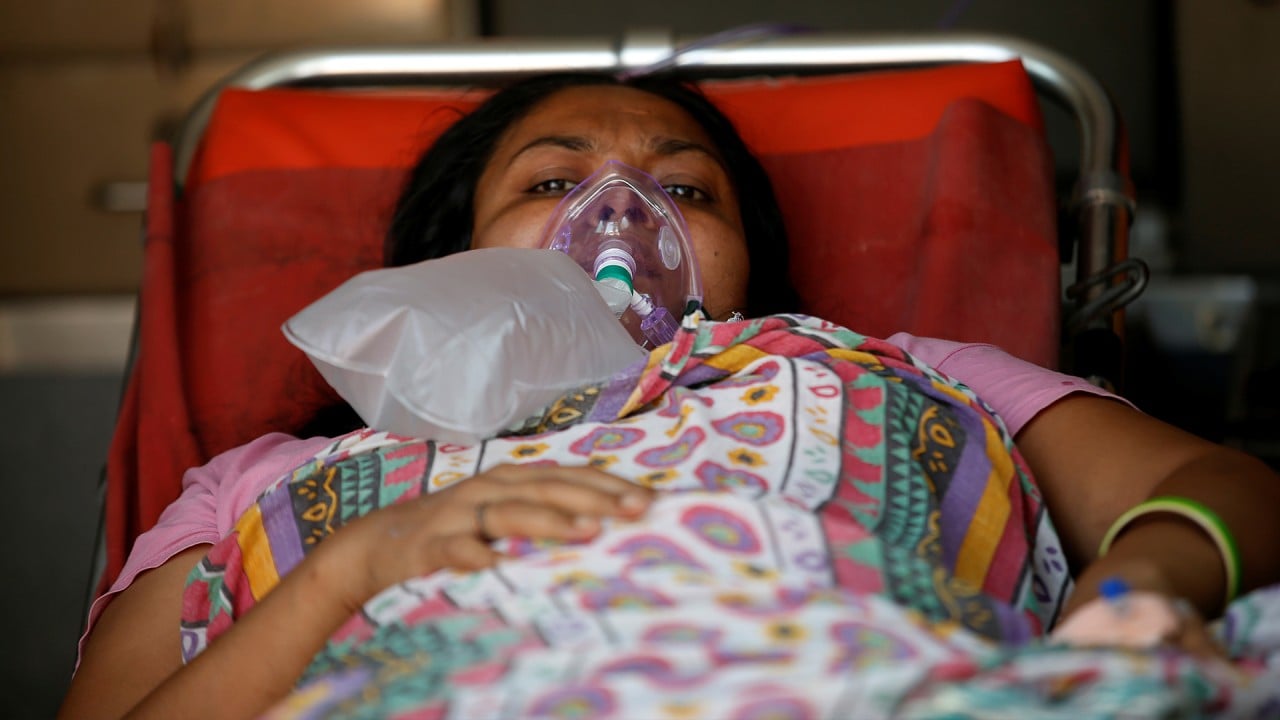
As US and China offer coronavirus aid, India wary of hidden agendas
- As virus mutations send infections rocketing in India, offers of help have arrived from both Biden and Beijing
- But the US has soured sentiment by dragging its feet; sceptics say China sees its chance to drive a wedge between Washington and New Delhi
“There’s always a hidden agenda behind Beijing’s outreach in such matters. China wants to signal to India that America [which initially refused help to India] is not a reliable partner and drive a wedge between Delhi and Washington who share a good relationship,” said Sibal, whose diplomatic career spanned nearly five decades including two as India’s top diplomat from 2001 to 2002.
“In a democracy, the government has to be mindful of public opinion. India would’ve played right into China’s hands if it had accepted its offer of help considering the latter is always on the lookout for domination on the geopolitical stage. Helping India in such a crisis would have conveyed those optics,” said Sajjanhar, a former ambassador to Kazakhstan, Sweden and Latvia.

China to mobilise private companies to help India fight Covid-19 surge
NO HARM ASKING FOR HELP
Sibal though said he saw no harm in India, the world’s largest vaccine-maker, accepting raw materials for vaccine production from China “given the fact we continue to trade with it and buy numerous products including thousands of dollars’ worth of solar panels etc”.
Jerome Kim, the director-general of the Seoul-based International Vaccine Institute, said India should ask China for help to meet a critical shortage of vaccines. India is a global supplier of vaccines and New Delhi has committed more funds to increase production, but national demand far outstrips supply.
India and China should recall how the US and Soviet Union set aside their differences during the Cold War to successfully eradicate small pox and polio, he added.
“This is an opportunity for neighbour to help neighbour. I think that would be a beneficial thing because not only would it be important for control of the disease, but it would also be important as an opportunity for the two countries to bridge traditional enmity,” said Kim.
Was India’s pull-out from lake on disputed China border a mistake?
Close to 9 per cent of India’s 1.3 billion population has received at least one dose of a vaccine, while about 1.6 per cent of the population is fully vaccinated. The jabs on offer are the locally produced Oxford-AstraZeneca vaccine or a home-grown one by Bharat Biotech. However, India is running low on vaccines after initially dispatching millions of doses to its neighbours as part of a vaccine diplomacy push.
But Washington’s initial slowness in coming to India’s aid led to souring sentiment in India towards the US, while the sizeable Indian diaspora – including US tech billionaire Vinod Khosla – in the US took matters into their own hands and began lobbying Washington.
Analysts say the US volte-face is a way of salvaging the situation, as Washington is well aware that India is its “only friend who can keep China in check on the volatile Asian geopolitical chessboard”, said a Delhi-based senior bureaucrat, who declined to be named as he was not authorised to speak publicly.
Amid souring sentiment towards the US, social media discussions also pointed out that Washington was not responsible for the latest surge. The Hindu newspaper’s National Editor Suhasini Haider suggested the appeals from Indians on social media for help spoke “to the absence of government of any kind”.
“Given this backdrop, the Biden administration’s failure to lend a helping hand to India for vaccine production would have come across as doublespeak and severely dented its credibility as a global leader,” he said.
Additional reporting by Bloomberg, Agence France-Presse


